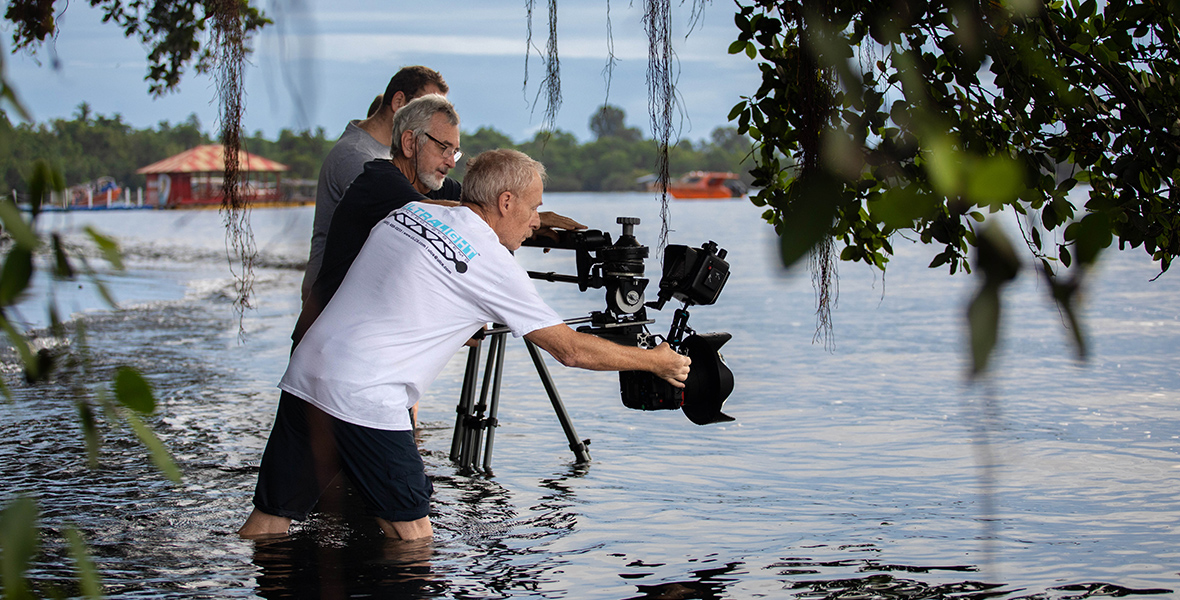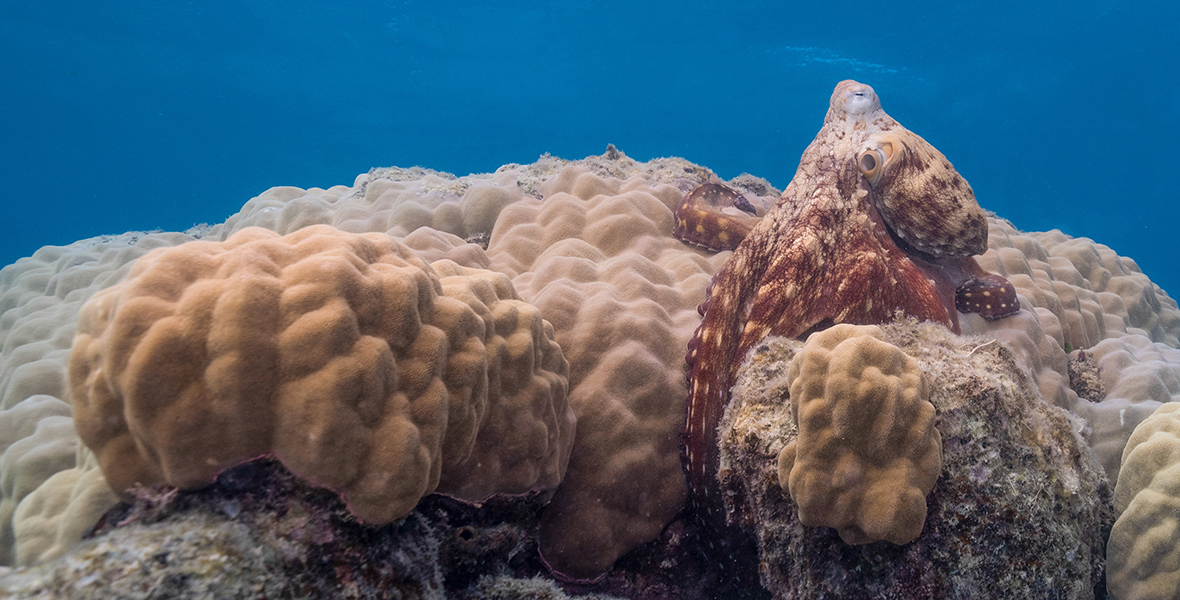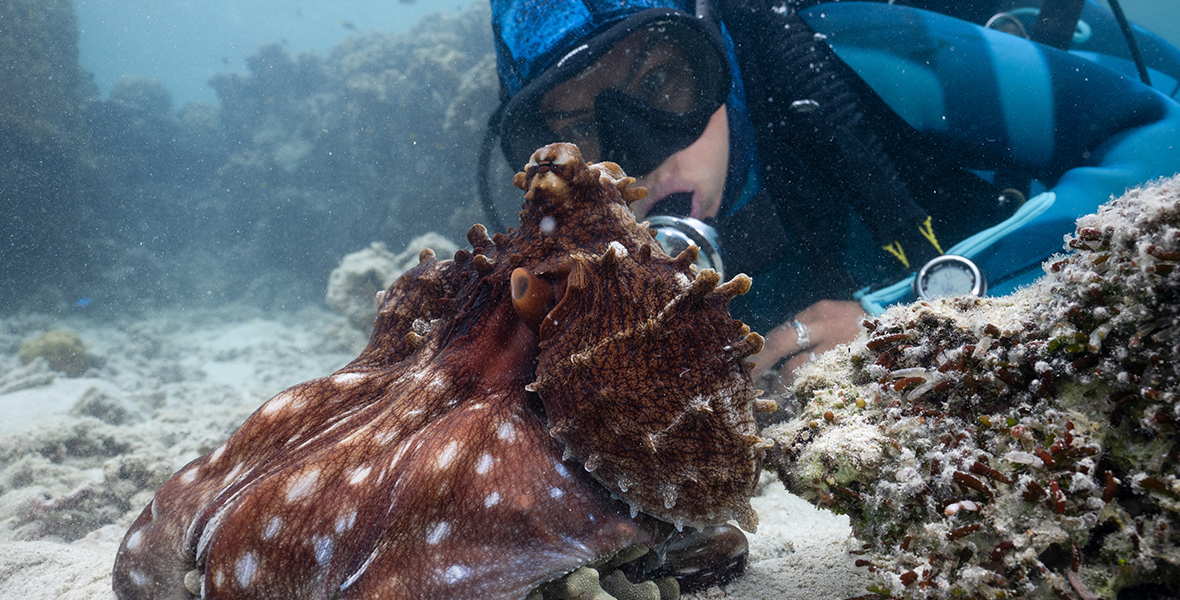By Cecilia Sarantopoulos
In the depths of the ocean, a creature of extraordinary complexity and mystery resides: the octopus. National Geographic’s upcoming three-part series Secrets of the Octopus premieres on Sunday, April 21, on National Geographic and the following day on Disney+ and Hulu, in celebration of Earth Day. Narrated by Paul Rudd, the series promises a mesmerizing exploration into the unique behaviors and intricate communication of these elusive creatures.
At the heart of the series from Academy Award®-winning filmmaker and National Geographic Explorer-at-Large James Cameron lies a deep reverence for the natural world. Drawing upon his experience in oceanic exploration, Cameron underscored the profound importance of understanding and preserving nature’s wonders. “My goal as a film creator of the Avatar movies and as a part of the National Geographic team is to raise consciousness and remind people how connected we must be with nature to preserve the natural ecosystem of the planet,” Cameron said during a session with several members of the documentary’s creative team at the 2024 Winter Television Critics Association press event.
Cameron also called octopuses “masterminds, shapeshifters, and so incredibly alien,” noting that they operate on a much higher level of consciousness than other sea creatures, such as sharks.

Executive producer Adam Geiger emphasized the significance of forming a genuine connection with these shy and intelligent creatures. “Octopuses are very shy,” Geiger said. “It can take hours or days before an octopus accepts your presence. But when that happens, its personality comes through.”
Dr. Alex Schnell, National Geographic Explorer and internationally recognized expert in comparative cognition, admires octopuses’ capacity for trust, considering the animal’s vulnerability in the absence of shells, claws, and teeth. Despite these limitations, octopuses possess a remarkable asset: the ability to camouflage. “Finding an octopus is incredibly difficult because they can blend into any background,” said Dr. Schnell. “They can change color in a fifth of a second and alter the texture of their skin, going from smooth to bumpy.”

Renowned author of Secrets of the Octopus, Sy Montgomery has spent years befriending and studying these enigmatic creatures, exploring everything from their mimicry of other species to their surprising social behaviors. “They also lie,” Montgomery disclosed, alluding to octopuses’ adeptness at camouflage and impersonation. “[Through their camouflaging], they say: ‘I’m a venomous lion fish.’”
Despite the allure of cutting-edge technology, Secrets of the Octopus adopts a refreshingly human approach to filmmaking: embracing patience and observation. The filmmakers of the series immersed themselves in the underwater realm, capturing intimate moments of octopus behavior with astonishing clarity and detail.
Through stunning visuals, insightful commentary, and heartfelt narration, the series invites us to dive deep into the mysteries of the ocean and discover the profound beauty that lies within. It’s a journey of discovery, enlightenment, and above all, a celebration of the intricate web of life that surrounds us!



